
Find Help
More Items From Ergsy search
-

How does the sugar tax affect consumers?
Relevance: 100%
-
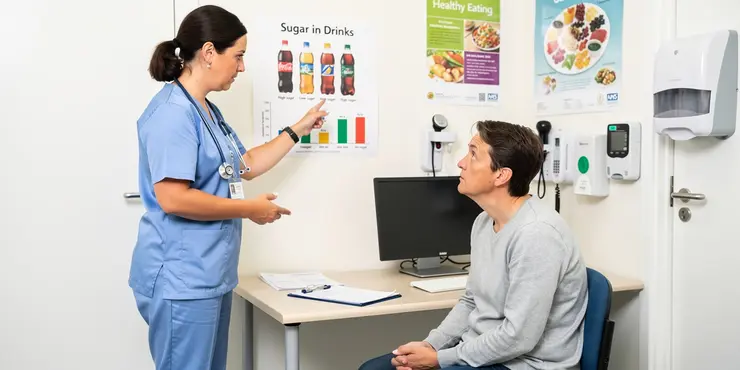
Has the sugar tax affected the sugar content in drinks?
Relevance: 83%
-

What is the purpose of the sugar tax?
Relevance: 82%
-

What is the sugar tax in the UK?
Relevance: 82%
-

Who pays the sugar tax?
Relevance: 81%
-
Is the sugar tax applied to diet or zero sugar drinks?
Relevance: 80%
-
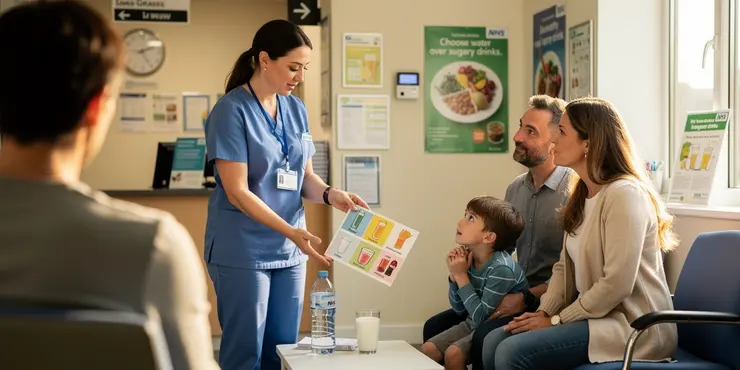
Has the sugar tax been effective?
Relevance: 78%
-

What are the long-term goals of the sugar tax?
Relevance: 76%
-

Has the sugar tax led to innovation in the drinks industry?
Relevance: 74%
-

How is the revenue from the sugar tax used?
Relevance: 74%
-

Does the sugar tax apply to small businesses?
Relevance: 74%
-
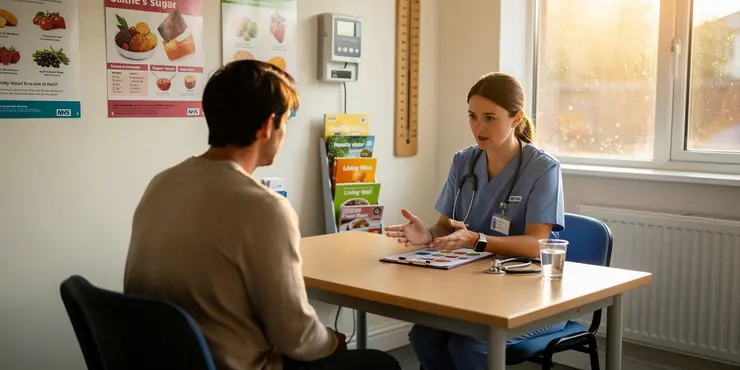
How does the sugar tax align with public health strategies?
Relevance: 71%
-

Which drinks are exempt from the sugar tax?
Relevance: 70%
-
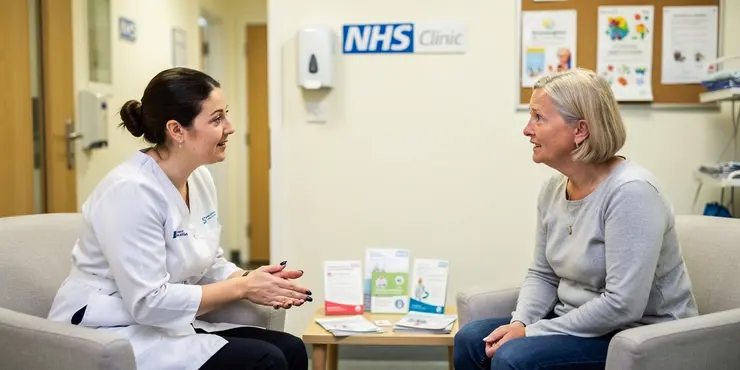
What impact has the sugar tax had on obesity rates?
Relevance: 69%
-
How much revenue has the sugar tax generated?
Relevance: 68%
-
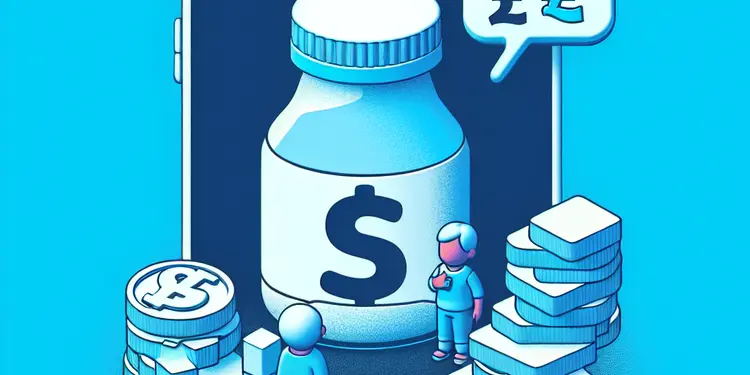
How many grams of sugar should a child consume daily?
Relevance: 65%
-

How can I satisfy my sweet tooth without consuming sugar?
Relevance: 60%
-
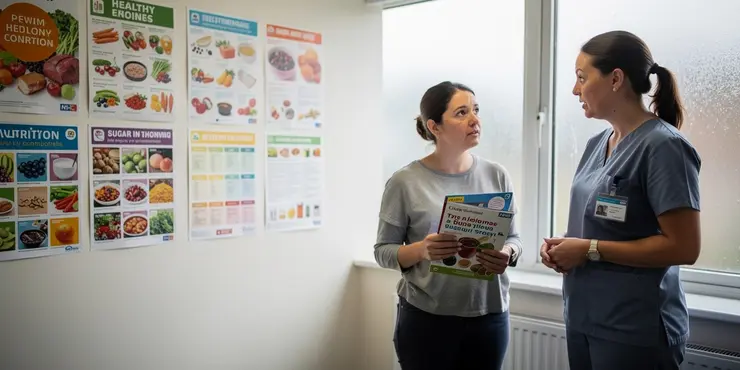
What are the rates for the sugar tax?
Relevance: 58%
-

How is the sugar tax applied?
Relevance: 57%
-
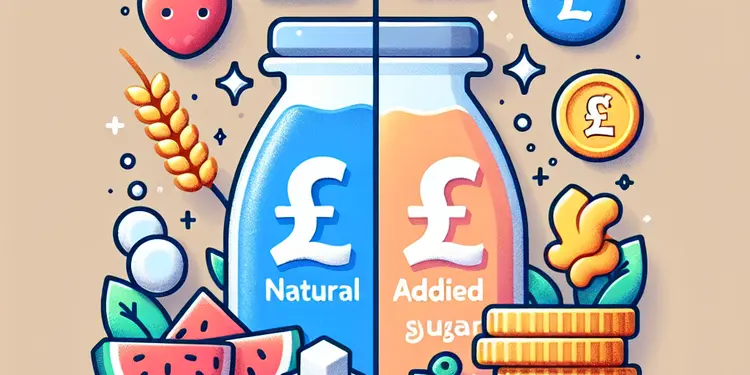
What is the difference between natural sugar and added sugar?
Relevance: 55%
-
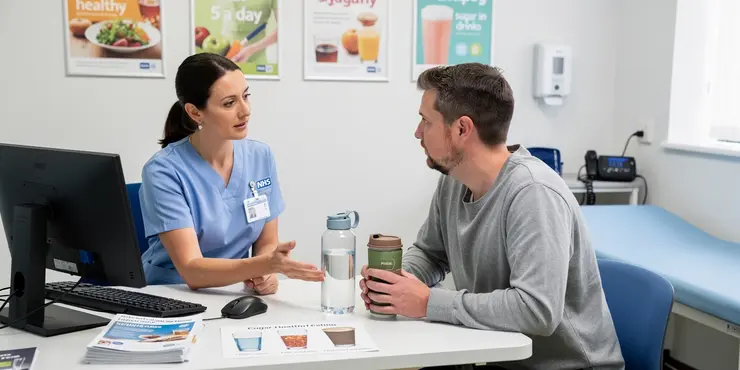
When was the sugar tax introduced in the UK?
Relevance: 53%
-
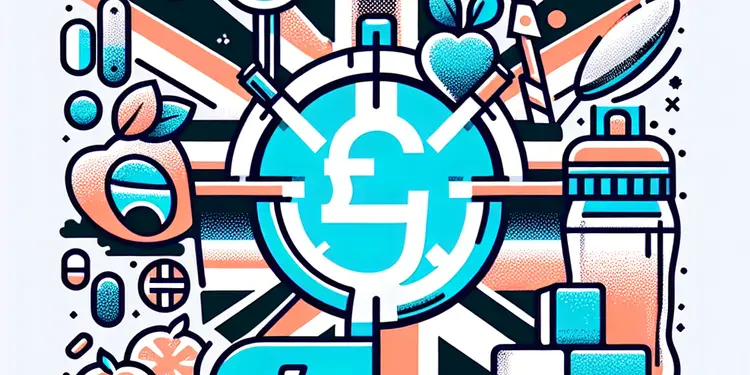
Are sugar substitutes healthier than regular sugar?
Relevance: 52%
-
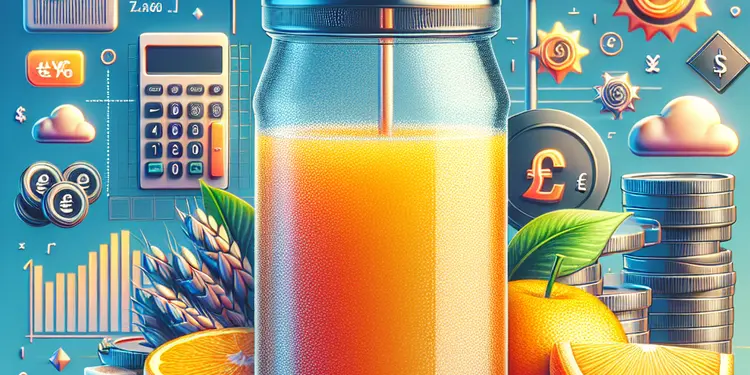
Is orange juice high in sugar?
Relevance: 50%
-

What is the 'sugar crash'?
Relevance: 50%
-

Is honey a better alternative to sugar?
Relevance: 50%
-
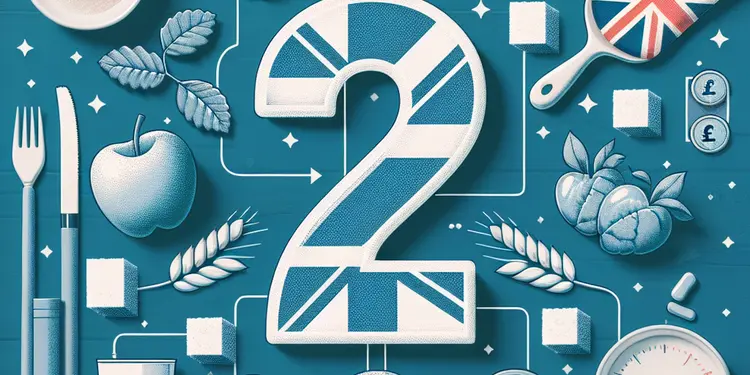
What is the role of sugar in a balanced diet?
Relevance: 49%
-
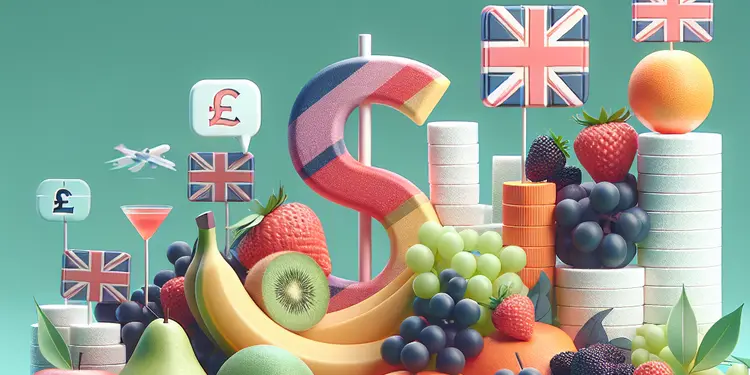
Is the sugar in fruit bad for you?
Relevance: 49%
-
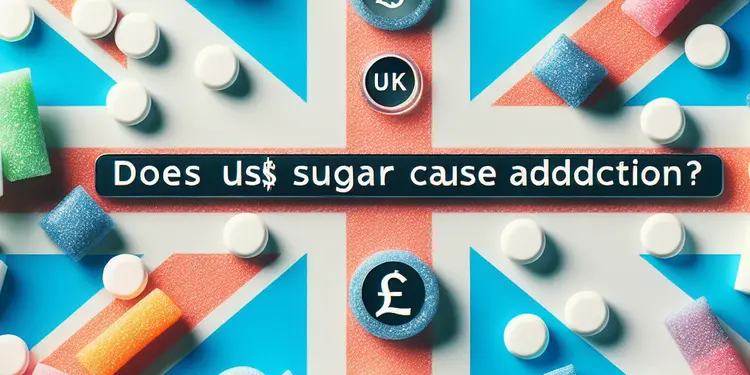
Does sugar cause addiction?
Relevance: 48%
-

Have any other countries implemented a sugar tax similar to the UK?
Relevance: 48%
-
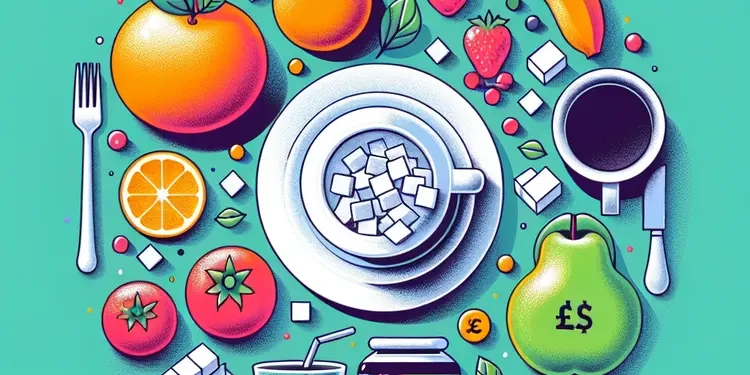
How much sugar should I eat every day?
Relevance: 47%
-
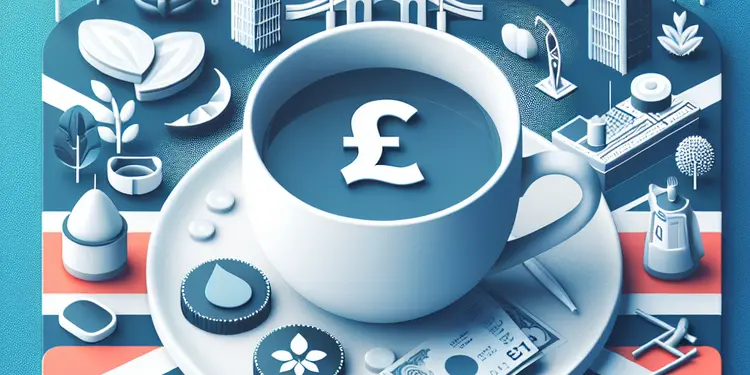
Can I have sugar if I am diabetic?
Relevance: 47%
-

How does sugar affect my energy levels?
Relevance: 47%
-
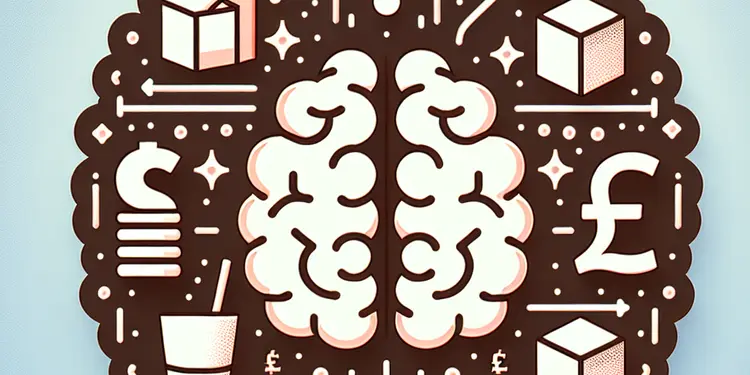
How does sugar impact mental health?
Relevance: 46%
-

Why is it important to limit sugar intake?
Relevance: 46%
-
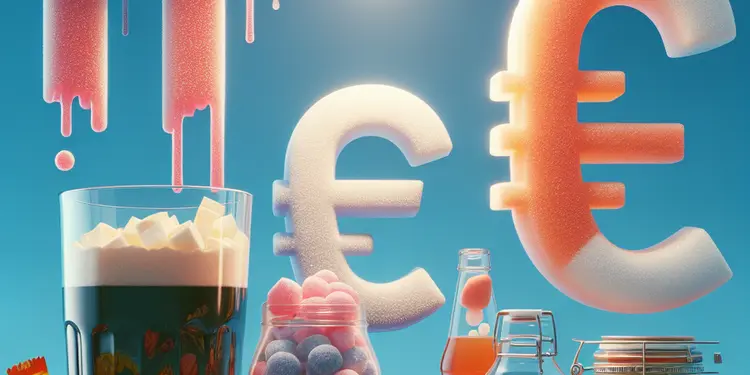
What are 'free sugars' and why should they be limited?
Relevance: 46%
-
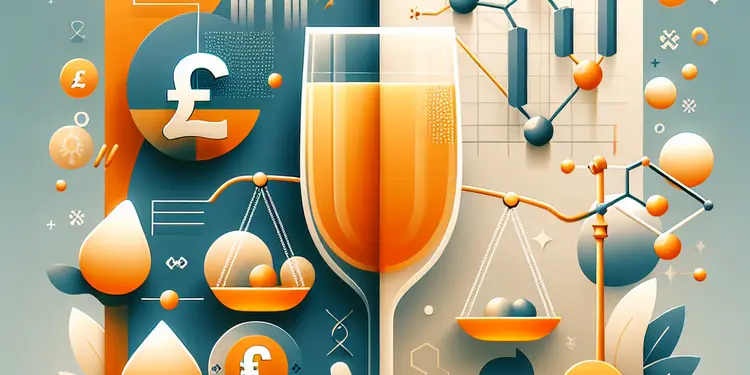
Does drinking orange juice affect blood sugar levels?
Relevance: 44%
-
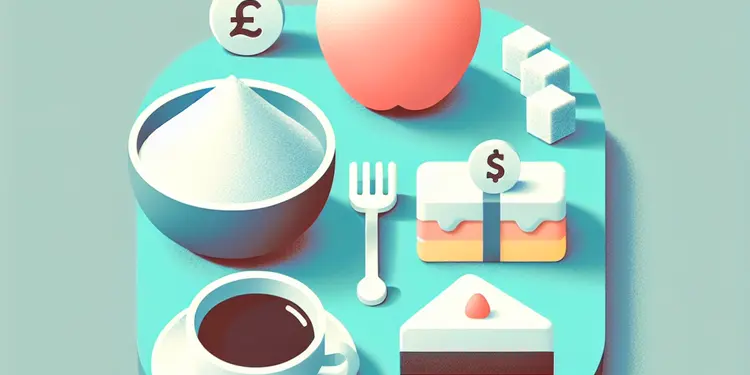
How can I reduce my sugar intake?
Relevance: 44%
-
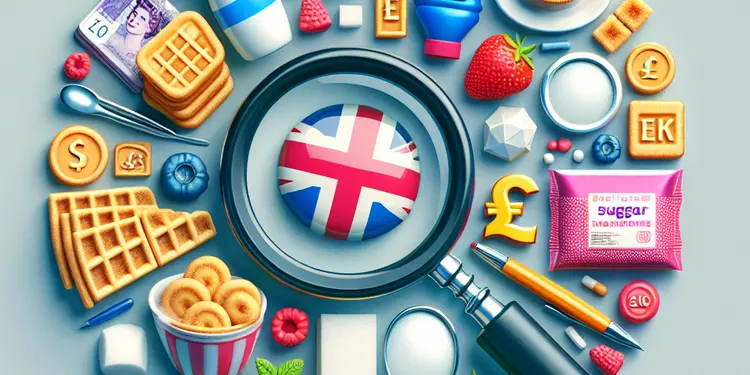
How do I determine how much sugar is in a product?
Relevance: 44%
-

What is the recommended daily sugar intake for adults?
Relevance: 43%
-
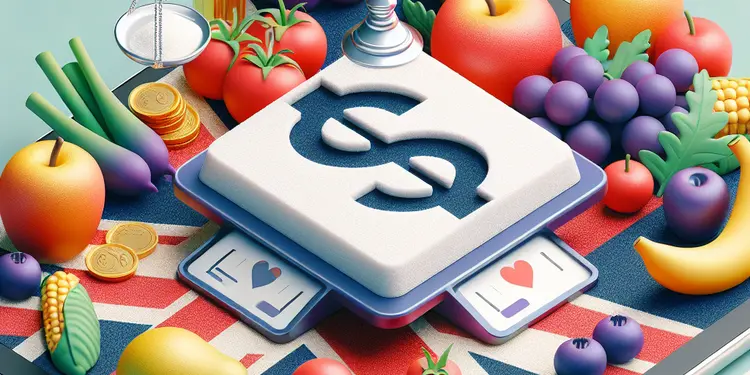
Can reducing sugar intake aid weight loss?
Relevance: 41%
Introduction to the Sugar Tax
The sugar tax, officially known as the Soft Drinks Industry Levy, was implemented in the United Kingdom in April 2018. This tax was designed as a public health measure to reduce the consumption of sugary drinks, which are linked to obesity and other related health issues. By imposing a levy on beverages that exceed a certain sugar content, the government aimed to incentivize manufacturers to reformulate their products, ultimately benefitting consumers' health.
Financial Implications for Consumers
One of the most direct effects of the sugar tax on consumers is the potential increase in the prices of sugary drinks. Consumers purchasing beverages that fall into the higher sugar categories covered by the levy may find themselves paying more. The tax is structured in two bands: one for drinks with 5-8 grams of sugar per 100ml and a higher rate for those containing more than 8 grams of sugar per 100ml. This financial impact may lead some consumers to reconsider their purchasing decisions.
Health Benefits for Consumers
The sugar tax's main goal is to promote healthier choices among consumers. With higher prices for sugary drinks, some consumers may opt for low-sugar or sugar-free alternatives. This shift can contribute to reducing the average sugar intake per capita, aligning with broader public health objectives like lowering obesity rates. Moreover, the pressure on manufacturers to reformulate products has resulted in many popular drinks reducing their sugar content, which helps consumers consume less sugar even when they do not actively change their preferences.
Consumer Perception and Behavior Change
While the price increase could deter some purchases, awareness campaigns accompanying the sugar tax have aimed to educate consumers about the benefits of reduced sugar consumption. This increased awareness can foster more informed decision-making, empowering consumers to make healthier choices. However, the effect on behavior varies among different demographic groups, with some consumers more resistant to changing long-standing habits.
Overall Impact on the Market
Since the introduction of the sugar tax, the market has seen a significant shift. Manufacturers have adapted by reformulating their products, introducing new lower-sugar options, and expanding their ranges of non-sugary beverages, such as bottled water and sugar-free soft drinks. Consumers benefit from a wider range of healthier options as a result. Additionally, the revenue generated from the sugar tax is intended to fund health initiatives, particularly those impacting children and teenagers, like sports programs and healthy eating initiatives, indirectly benefiting consumers by supporting healthier community environments.
Conclusion
In conclusion, the sugar tax in the UK has had varied effects on consumers. While it has increased prices for sugary drinks, prompting some behavior change, it has also led to broader market transformations and increased health awareness. Ultimately, the sugar tax aims to foster a healthier population by encouraging reduced sugar consumption through both direct and indirect measures, benefiting consumers in the long run.
What is the Sugar Tax?
The sugar tax is an extra cost added to sugary drinks. It started in the UK in April 2018. The goal is to help people live healthier lives by drinking less sugary drinks. Sugary drinks can make people overweight and sick. By charging more money for drinks with a lot of sugar, the government hopes that companies will make drinks with less sugar. This can help make people healthier.
How Does the Sugar Tax Affect Prices?
The sugar tax can make sugary drinks more expensive. This means people might have to pay more money if they buy drinks with lots of sugar. There are two levels of the tax. One level is for drinks with 5-8 grams of sugar per 100ml, and a higher level is for drinks with more than 8 grams of sugar per 100ml. Because of this, some people might stop buying these drinks.
Healthier Choices for People
The sugar tax wants to help people choose healthier drinks. When sugary drinks cost more, some people might decide to buy drinks with less or no sugar. This change can help people eat and drink less sugar. This can also help lower the number of people who are overweight. Because of the tax, many drink companies have also started to make their drinks with less sugar, which helps everyone drink less sugar.
How People Feel About the Sugar Tax
Even though the sugar tax makes some drinks more expensive, it also comes with information campaigns. These campaigns teach people why drinking less sugar is good. Knowing this information can help people make choices that are better for their health. But, not everyone changes what they buy because of the sugar tax. Some people may keep buying sugary drinks because they like them.
Changes in the Market
Since the sugar tax began, there have been big changes. Drink companies are making drinks with less sugar and creating new drinks with no or low sugar, like water and sugar-free sodas. Now, people have more choices to find healthier drinks. The money from the sugar tax is used to help pay for health programs, especially for kids and teens, like sports programs and healthy eating activities.
Wrapping Up
In short, the sugar tax has different effects on people in the UK. It has made sugary drinks cost more, which has led some people to change what they buy. It has also helped make more healthy drinks available and raised awareness about eating less sugar. The main goal of the sugar tax is to help people be healthier by eating less sugar, giving benefits to everyone over time.
Frequently Asked Questions
What is a sugar tax?
A sugar tax is a levy imposed on sugary drinks and foods to reduce sugar consumption and improve public health.
How does the sugar tax affect the price of sugary drinks?
The sugar tax often leads to higher prices for sugary drinks as manufacturers pass the cost onto consumers.
Do all sugary products fall under the sugar tax?
The scope of sugar tax varies by jurisdiction but commonly targets drinks with high sugar content and may or may not include foods.
How does the sugar tax impact consumer buying habits?
The tax can discourage consumers from purchasing sugary drinks, leading them to choose healthier alternatives.
Are all consumers affected equally by the sugar tax?
No, the impact varies depending on individual consumption habits and income levels, with low-income groups typically feeling a larger financial burden.
What alternatives can consumers choose if they want to avoid the sugar tax?
Consumers can opt for sugar-free or low-sugar beverages, or choose plain water and other unsweetened drinks.
Does the sugar tax apply only to sweetened beverages?
While sugar tax primarily targets sweetened beverages, some regions may also include other sugary foods.
How does the sugar tax affect public health?
The tax aims to reduce sugar consumption, helping to lower rates of obesity, diabetes, and other health issues linked to high sugar intake.
Do businesses pass the full cost of the sugar tax to consumers?
Typically, businesses do pass on the cost to consumers, but some may absorb a portion of the tax to remain competitive.
Are there any exceptions to the sugar tax for certain products?
Some regions might exempt smaller producers or certain products, like milk-based drinks, based on specific criteria.
Does the sugar tax make consumers more health-conscious?
Yes, by highlighting the sugar content and cost increase, the tax raises awareness and may encourage healthier choices.
How does consumer behavior change in response to a sugar tax?
Consumers may reduce consumption of taxed items, switch to healthier options, or seek untaxed alternatives.
Can the sugar tax help reduce healthcare costs?
If effective in reducing sugar-related health conditions, the sugar tax could lead to lower long-term healthcare costs.
How does the sugar tax affect low-income consumers specifically?
Low-income consumers may feel a disproportionate financial impact, potentially changing their purchasing behaviors more significantly.
What happens to the revenue collected from the sugar tax?
Governments may allocate revenue to healthcare initiatives or public health programs, although this varies by region.
Do sugar tax rates vary by product type?
Yes, different products may be taxed at varying rates based on sugar content or volume.
Is there evidence of the sugar tax reducing sugar consumption?
Studies in some countries show reduced consumption of sugary beverages following the implementation of a sugar tax.
Does the sugar tax affect the availability of sugary products?
While availability might not change drastically, consumers may notice more marketing for low-sugar alternatives.
Will the sugar tax lead to product reformulation?
Yes, manufacturers might reformulate products to reduce sugar content and avoid the tax.
Can the sugar tax impact the overall market for beverages?
Yes, it can lead to shifts in market demand toward non-taxed beverages and potentially spur innovation in low and no-sugar products.
What is a sugar tax?
A sugar tax is extra money people pay when they buy drinks with a lot of sugar. The government uses this money to help people be healthier.
Here are some tips to help understand:
- Look for labels on drinks to see how much sugar they have.
- Try drawing or using pictures to see which drinks have more sugar.
- Ask someone to help explain if it’s still tricky.
A sugar tax means extra money you have to pay when you buy drinks and foods with lots of sugar. This is to help people eat and drink less sugar and be healthier.
How does the sugar tax change the cost of sugary drinks?
The sugar tax is a rule to make sugary drinks more expensive.
It makes these drinks cost more money so people might buy less.
If you have trouble reading, try using a text-to-speech tool to read it out loud. You can also ask someone to help explain it to you.
The sugar tax can make fizzy drinks with lots of sugar cost more money. This happens because the people who make the drinks raise the prices to cover the tax.
Does the sugar tax cover all sugary foods and drinks?
Not all sugary foods and drinks have the sugar tax. Some sugary things do, and some do not. If you want to know if something has the sugar tax, look it up or ask someone who knows.
If reading is hard, try using a ruler to follow the lines. You can also ask someone to read it with you or use a computer tool that reads out loud.
The sugar tax rules are different in each place. Usually, it is for drinks that have a lot of sugar. Sometimes it includes foods, but not always.
How does the sugar tax change what people buy?
The tax can stop people from buying sugary drinks. This might make them pick healthier drinks instead.
Does the sugar tax affect everyone the same?
The sugar tax is when people pay more money for drinks with a lot of sugar.
Not everyone feels the sugar tax the same way. Some people buy more sugary drinks, so they pay more. Others might choose drinks without sugar. This way, they don't pay extra.
Tools to help: Look at simple charts that show who buys the most sugary drinks. You can also use apps that show which drinks have a lot of sugar.
No, it is different for each person. It depends on how much they use and how much money they have. People with less money usually feel it more.
What can people choose if they don't want to pay extra for sugary drinks?
If you want to avoid paying more money for sugary drinks, here are some simple choices: - Drink water. It's healthy and doesn't cost extra. - Try drinks with no sugar. Look for labels that say "no sugar" or "sugar-free." - Choose milk if you like it. It's good for you and has less sugar than soda. - Make fruit drinks at home with real fruit. Blend some fruit and water for a tasty drink. Helpful tools: - You can use a phone app to check how much sugar is in drinks. - Ask an adult for help if you're not sure what to pick.You can pick drinks with no sugar or less sugar, or choose plain water and drinks without added sugar.
Does the Sugar Tax Only Apply to Sweet Drinks?
The sugar tax is mainly for drinks with a lot of sugar. But in some places, it also includes sugary foods.
What does the sugar tax do to help people be healthy?
The tax is meant to help people eat less sugar. This can help people stay healthy. Eating less sugar can help stop problems like getting too fat or sick with diabetes.
Do shops make people pay more because of the sugar tax?
Here is a simple way to think about it:
- Sometimes, the government puts a tax on sugary drinks. This is called the sugar tax.
- This means shops have to pay more money to buy these drinks.
- We want to know if the shops make people pay extra money for the drinks to cover the tax.
- Sometimes they do, and sometimes they don’t. It can be different in each shop.
To understand this better, you can:
- Ask someone to explain it to you.
- Use a calculator to see how prices change.
- Watch videos about how taxes work.
Most of the time, businesses make customers pay more if there is a new cost. But some businesses might pay some of the cost themselves so that they can keep getting customers.
Are there any products that do not have to follow the sugar tax rules?
Some places might have different rules. Smaller companies or some products, like milk-based drinks, might have special rules.
Does the sugar tax make people think more about their health?
The sugar tax is a rule where people pay more money for drinks with a lot of sugar.
Does the sugar tax help people choose drinks that are better for their health?
Here are some tips to help you understand:
- Think about how much sugar is in your drink.
- Look for drinks with less sugar on the label.
- Try drinking water or fruit juice instead of sugary drinks.
Tools to help you:
- Use a smartphone app to check how much sugar is in a drink.
- Ask a family member or friend to help read labels in the store.
Yes, the tax makes people think more about the sugar in drinks. It also makes drinks cost more. This can help people choose healthier drinks.
How do people change what they buy because of a sugar tax?
When the price of sugary drinks or snacks goes up because of a sugar tax, people might buy:
- Less sugary drinks or snacks
- Cheaper brands
- Healthier options
Some people might not change what they buy. Others might try new things like:
- Drinks with less sugar
- Natural fruit juices
- Water
Helpful tips:
- Make shopping lists before going to the store
- Look for sales or discounts
- Try recipes with less sugar
People might buy less of the taxed items, choose healthier things, or look for things that are not taxed.
Can a sugar tax help save money on healthcare?
Sugar tax means extra money is added to drinks with lots of sugar. This can help people buy less sugary drinks. Drinking less sugar can make people healthier. When people are healthier, we spend less money on doctors and medicine. To understand better: - Use pictures and simple charts to see how sugar affects health. - Talk about it with a friend or family member. - Ask someone to explain it to you.If the sugar tax works well, it might help people have fewer health problems from eating too much sugar. This could mean spending less money on health care in the future.
How does the sugar tax impact people who do not have a lot of money?
People who do not have much money might feel the effects more. This could change how they spend their money.
Where does the money from the sugar tax go?
The government gets money from the sugar tax. They use this money to help people be healthier.
The money helps schools make better lunches for kids. It also helps pay for sports and activities.
If you want to know more, you can ask someone to explain it to you. Reading apps or audiobooks can also help you understand better.
Governments might give money to help with doctor's visits or health programs, but this can be different in each place.
Are sugar taxes different for types of products?
Do different kinds of food and drink have different sugar taxes?
Yes, different products can have different taxes. This can depend on how much sugar they have or how much there is of the product.
Does the sugar tax help people eat less sugar?
The government put a special tax on sugary drinks. This is to try to make people drink less sugar. Has this worked? Are people drinking less sugar now?
If you find it hard to understand this, you can try to:
- Use pictures to help explain.
- Ask someone to read it with you.
- Listen to audio or video about it.
In some countries, people drink less sugary drinks after the government adds a sugar tax.
Does the sugar tax change how much sugary stuff you can buy?
The "sugar tax" is money that companies must pay if their drinks have a lot of sugar.
This means sugary drinks might cost more. So, some shops might have less sugary drinks.
If you want less sugar, try:
- Choosing water or milk
- Looking for drinks with "low sugar" on the label
- Asking an adult for help to find healthy drinks
Things to buy in the store might not change a lot, but you may see more ads about foods and drinks that have less sugar.
Will the sugar tax make companies change their recipes?
The sugar tax is a rule that makes sugary drinks cost more money. This rule is to help people drink less sugar and stay healthy.
Making sugary drinks more expensive might make companies change how they make their drinks. They might use less sugar so people will still buy them without paying more.
If you're finding it hard to understand, you can use tools to help you read. For example, you can listen to the text if it’s read aloud or use a dictionary to learn new words.
Yes, companies might change their products to have less sugar so they don't have to pay the tax.
Can the sugar tax change the drink market?
Yes, this means people might want drinks that are not taxed even more. It could also help companies make drinks with little or no sugar.
Useful Links
This website offers general information and is not a substitute for professional advice.
Always seek guidance from qualified professionals.
If you have any medical concerns or need urgent help, contact a healthcare professional or emergency services immediately.
Some of this content was generated with AI assistance. We’ve done our best to keep it accurate, helpful, and human-friendly.
- Ergsy carfully checks the information in the videos we provide here.
- Videos shown by Youtube after a video has completed, have NOT been reviewed by ERGSY.
- To view, click the arrow in centre of video.
- Most of the videos you find here will have subtitles and/or closed captions available.
- You may need to turn these on, and choose your preferred language.
- Go to the video you'd like to watch.
- If closed captions (CC) are available, settings will be visible on the bottom right of the video player.
- To turn on Captions, click settings .
- To turn off Captions, click settings again.
More Items From Ergsy search
-

How does the sugar tax affect consumers?
Relevance: 100%
-

Has the sugar tax affected the sugar content in drinks?
Relevance: 83%
-

What is the purpose of the sugar tax?
Relevance: 82%
-

What is the sugar tax in the UK?
Relevance: 82%
-

Who pays the sugar tax?
Relevance: 81%
-
Is the sugar tax applied to diet or zero sugar drinks?
Relevance: 80%
-

Has the sugar tax been effective?
Relevance: 78%
-

What are the long-term goals of the sugar tax?
Relevance: 76%
-

Has the sugar tax led to innovation in the drinks industry?
Relevance: 74%
-

How is the revenue from the sugar tax used?
Relevance: 74%
-

Does the sugar tax apply to small businesses?
Relevance: 74%
-

How does the sugar tax align with public health strategies?
Relevance: 71%
-

Which drinks are exempt from the sugar tax?
Relevance: 70%
-

What impact has the sugar tax had on obesity rates?
Relevance: 69%
-
How much revenue has the sugar tax generated?
Relevance: 68%
-

How many grams of sugar should a child consume daily?
Relevance: 65%
-

How can I satisfy my sweet tooth without consuming sugar?
Relevance: 60%
-

What are the rates for the sugar tax?
Relevance: 58%
-

How is the sugar tax applied?
Relevance: 57%
-

What is the difference between natural sugar and added sugar?
Relevance: 55%
-

When was the sugar tax introduced in the UK?
Relevance: 53%
-

Are sugar substitutes healthier than regular sugar?
Relevance: 52%
-

Is orange juice high in sugar?
Relevance: 50%
-

What is the 'sugar crash'?
Relevance: 50%
-

Is honey a better alternative to sugar?
Relevance: 50%
-

What is the role of sugar in a balanced diet?
Relevance: 49%
-

Is the sugar in fruit bad for you?
Relevance: 49%
-

Does sugar cause addiction?
Relevance: 48%
-

Have any other countries implemented a sugar tax similar to the UK?
Relevance: 48%
-

How much sugar should I eat every day?
Relevance: 47%
-

Can I have sugar if I am diabetic?
Relevance: 47%
-

How does sugar affect my energy levels?
Relevance: 47%
-

How does sugar impact mental health?
Relevance: 46%
-

Why is it important to limit sugar intake?
Relevance: 46%
-

What are 'free sugars' and why should they be limited?
Relevance: 46%
-

Does drinking orange juice affect blood sugar levels?
Relevance: 44%
-

How can I reduce my sugar intake?
Relevance: 44%
-

How do I determine how much sugar is in a product?
Relevance: 44%
-

What is the recommended daily sugar intake for adults?
Relevance: 43%
-

Can reducing sugar intake aid weight loss?
Relevance: 41%


